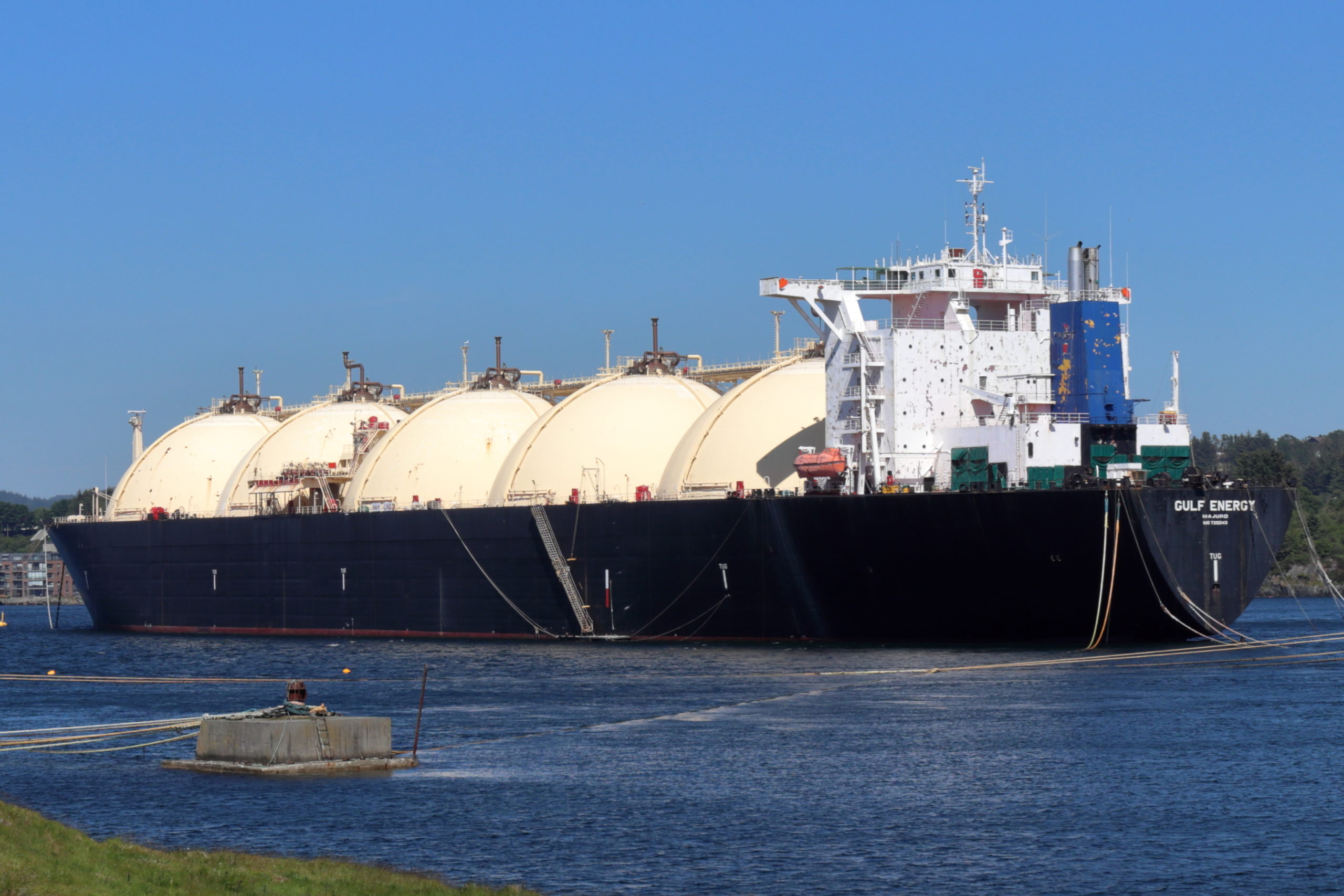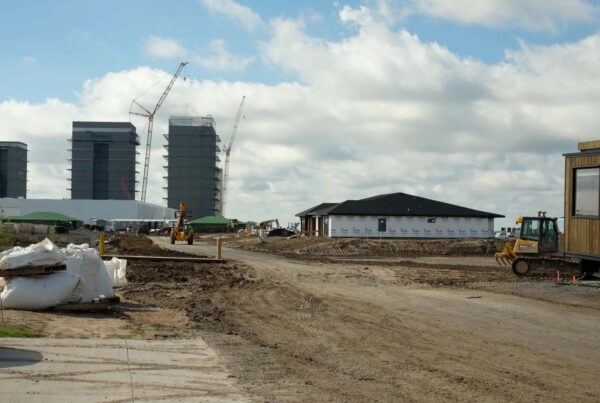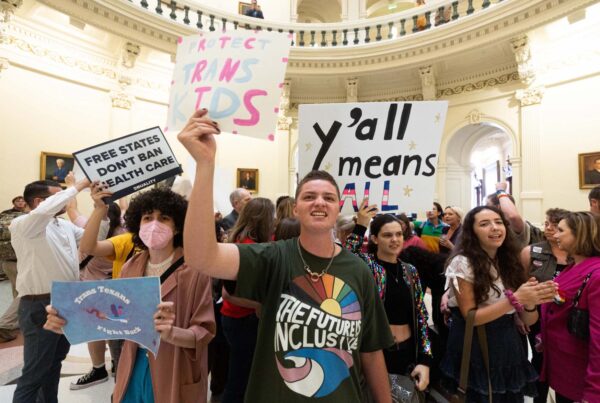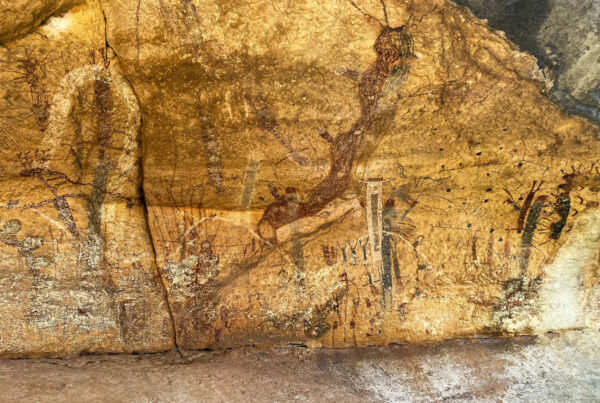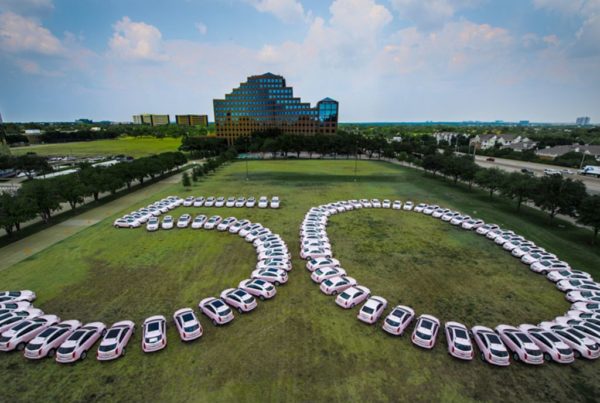The United States has steadily shipped out more and more liquified natural gas, or LNG, since 2015. That year, the U.S. exported just over 28,000 units of LNG. In 2023, it sent out nearly 4 million.
LNG is an important fuel source, particularly in Europe. Much of the gas comes from the Texas oil fields. It’s piped to terminals along the Gulf Coast, where it’s liquified and loaded into large ships.
Late last week, however, the Biden administration pulled the industry’s emergency brake. Energy Secretary Jennifer Granholm said her department would temporarily stop approving new LNG exports. Applications for new facilities to liquify natural gas would also be put on pause.
Carlos Anchondo, reporter for Politico’s Energy and Environment News, spoke to Texas Standard about the potential ripple effects of the decision. Listen to the interview above or read the transcript below.
This transcript has been edited lightly for clarity:
Why did the Biden administration essentially put the liquefied natural gas industry on pause?
Carlos Anchondo: So the Biden administration has said it’s heeding the calls of young people and so-called front line communities that are opposed to the build out of these LNG terminals.
And the White House has basically said, “look, it’s been a few years since we took a hard look at the life cycle emissions of LNG, and we need to understand the real effect of LNG exports on things like energy costs, U.S. energy security and the environment.” And they also point to climate change in the announcement that they rolled out last week.
But this has never been done before, to my knowledge. In fact, in the past, new LNG facilities have been routinely approved. What have members of the energy industry had to say about it?
Well, not surprisingly, they’re upset about this pause. And even before the pause was officially announced, the industry came out and was pushing against this.
So basically what the industry has said is that Europe needs U.S. gas. That this is a bad time. As you know, Russia is still at war with Ukraine. And so they’ve really pushed back against this announcement.
What about environmentalists who’ve been speaking out about the dangers of LNG? Are they counting this as a win?
They are definitely counting this as a win.
And so there’s a sharp divide between environmentalists and the industry. And the green groups are pointing to a recent announcement, an agreement at the (COP) 28 conference, which happened last month in the UAE. And that calls for transitioning away from fossil fuels starting this decade.
And so those groups have celebrated this win by the Biden administration and said that after the decision by the Biden administration that approved the Willow oil drilling project in Alaska, they said, “look, this is necessary” and, really a lot of analysts have said it’s important for the Biden administration to do if Biden is going to win back young voters and voters who are thinking about the climate, as they go to the ballot box.
Are there specific projects you’re aware of that will be particularly affected by this pause?
Yeah, so there are roughly a dozen or more projects that would be affected. But it’s important to note that this pause doesn’t affect currently-approved exports. It’s a pause on pending and future ones.
So one project in particular is called the Commonwealth LNG project, and that’s in Louisiana. And that project applied to [the Department of Energy] for a license to export back in October 2019, and it’s still waiting for DOE to make a decision on that. So that’s one project that would be affected.
Another project is known as the CP2 LNG project. And environmentalists have really focused on that project, in part because of its size. And that would be another project that would be affected.
CP2 – where was that supposed to be set up?
That would also be in Cameron Parish, Louisiana. So a lot of projects are concentrated there in the southwest corner of Louisiana. And that gas could go to Europe. It could go over to Asia as well.


